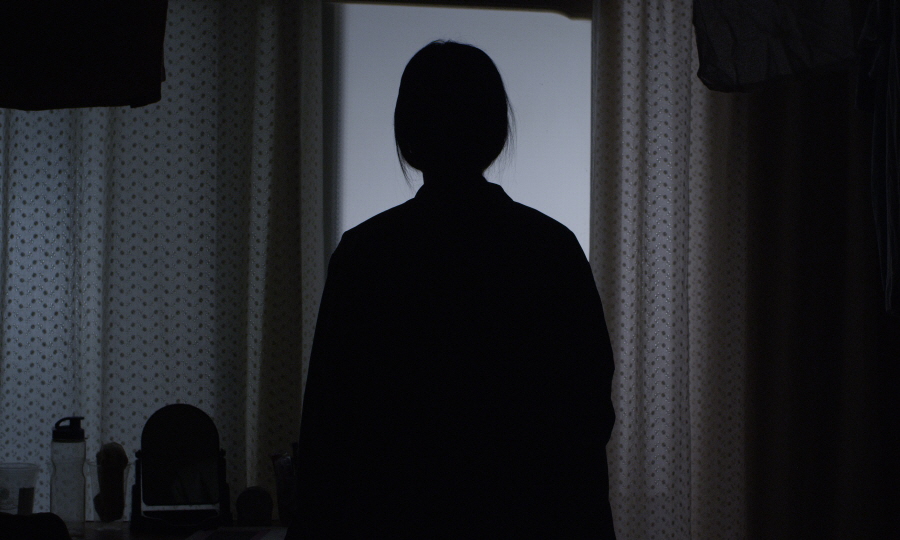BiFan Film Review: ‘Ghost Walk’
By Richard Kuipers
LOS ANGELES (Variety.com) – A young specter revisits the last days of her solitary life in “Ghost Walk,” a gentle horror film that marks an encouraging feature debut for South Korean female writer-director Yu Eun-jeong. Employing a nifty narrative device whereby the apparition experiences time in reverse and becomes involved in the life-and-death plight of a frightened young girl, Yu gets a bit tangled up with plot mechanics toward the end but succeeds in painting a lyrical picture of loneliness and isolation. Following its world premiere at BiFan, where it won the audience vote for films in competition, “Ghost” deserves a chance to walk into traditional and genre-themed festivals.
Yu’s imaginative screenplay is set during Chuseok, a Korean holiday period similar to Thanksgiving, when families get together and ancestors are honored. Guiding viewers through the tale is voice-over narration by Hye-jung (Han Hae-in). Her melancholy opening message is that she has become “a ghost with no tomorrow” and must walk backward in time to remember who she was and make some sense of her brief and unhappy mortal existence.
Before Hye-jung commences this journey, viewers are given snapshots from the last days of her life as a factory worker in an unnamed and unremarkable small town. A withdrawn figure who’s severed all family ties and rejected the romantic overtures of Min-seong (Lee Seung-chan), a kind and sensitive co-worker, Hye-jung is practically invisible to self-centered roommates Ji-yeon (Lee Ja-min) and her sister Mi-suk (Choi Sol-hui). The picture of someone who’s physically alive but emotionally dead is most telling when Hye-jung ignores Su-yang (Gam So-hyun), a young girl crying for help in a dark alley.
Yu’s smart scripting and Lee Young-lim’s clever editing set up a number of interconnected mysteries once Hye-jung’s spirit rises from her corpse in a hospital ward and begins traveling in reverse to the start of Chuseok. Sometimes observing herself from a distance and at others watching events as an invisible presence, Hye-jung begins piecing together the circumstances of her death. As the days wind back and local cops investigate a murder that may be the work of a serial killer, Hye-jung uncovers a disturbing connection between Ji-yeon and Kwang-sik (Lee Young-soo), a scuzzy loan shark.
The film’s highly satisfying emotional center takes shape when Su-yang reappears and forms a close connection with Hye-jung. The scared little girl is also a ghost, having perished in an auto accident several days before Hye-jung’s death. Furthermore, she is the motherless daughter of Kwang-sik, whose life is also in danger. To that point an absorbing but downbeat tale, “Ghost” acquires a much brighter complexion when Hye-jung becomes a protective spiritual mother to Su-yang and discovers it may be possible to alter the girl’s fate.
It doesn’t matter too much that “Ghost” hits a couple of minor plotting and plausibility bumps as the clock continues to wind back and Su-yang’s destiny hangs in the balance. What will register much more strongly with viewers is the bond between an innocent child and a woman who has found an identity and a sense of purpose in this state of limbo that eluded her in life. The film’s uplifting final message to audiences is that all lives have meaning and value.
A predominantly female cast excels under Yu’s careful direction. Dressed in colorless clothes that make her blend into the background of drab buildings and gloomy nighttime streetscapes, Han Hae-in is quietly compelling as the lost-then-found soul; child actor Gam So-hyun is terrific as the imperiled youngster.
Well produced on a very limited budget, “Ghost” contains some nice old-school visual effects and is notable for beautifully lit close-ups captured by DP Lee Ju-hwan. The Korean title translates as “The Door of the Night Opens.”

